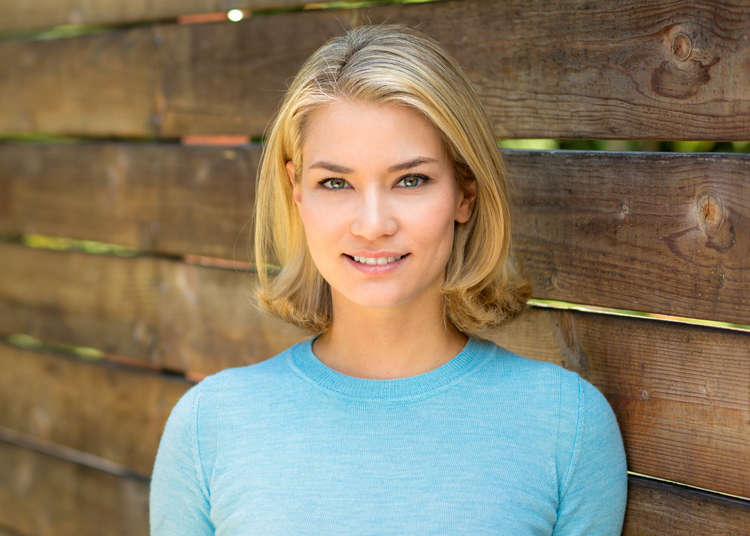
In Japan, some of us learn about the American people's personality from movies and tv shows, seeing things like clearly expressing one’s feelings and respecting individual rights. So what is it like from the opposite perspective? How do some Americans see us?
We've interviewed Americans on a few occasions, so here we've put together a collection of those responses to see what shocked Americans the most when they visited Japan. (The following reflects the opinions of those interviewed only)
Izakaya are the best! Everyone is so full of energy!
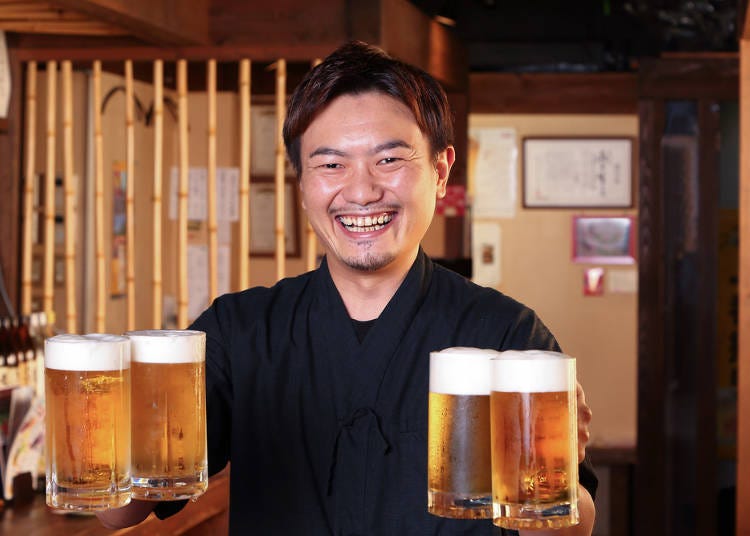
“Izakaya are wonderful! Good food, low prices, and most of all, the staff are cheerful and helpful. I was really surprised when I went back to my table from the bathroom and I was given a hand towel. It’s not unusual for a 3-star restaurant or more in the US, but it’s not common when it comes to pubs.” (American man who has been in Japan for 5 years)
The place that surprised this American man the most was an izakaya. Of course, service is important, but it seems to be on another level in Japan!
“Sometimes it’s a little too lively and noisy (laugh). Especially when they yell “Welcome,” and everyone else repeats it. At first I wasn’t used to it, but I kind of like it now.”
This liveliness is at the heart of izakaya. If you're not used to it, it might come as a bit of a surprise - but you'll warm up to it pretty quickly!
I was surprised to see so many people wearing masks in the city!
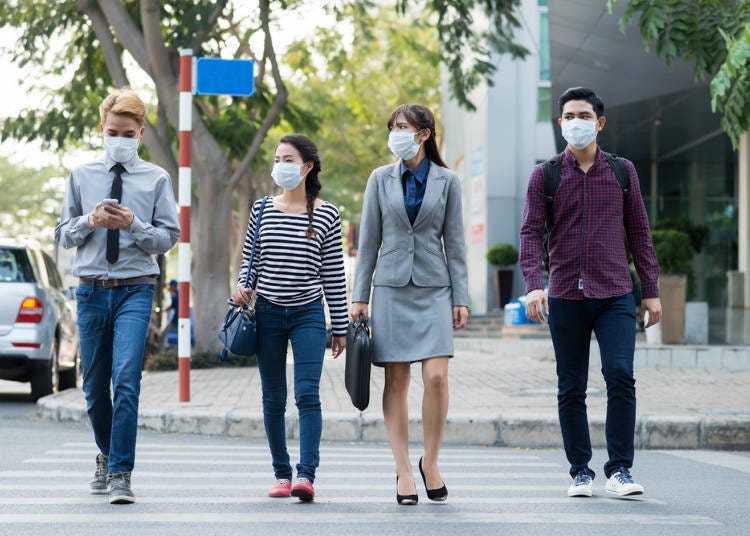
*The following statement and writer's response was given before the outbreak of Covid-19.
“When I first came to Japan, I wondered why they did it when I saw so many people wearing masks. In America you usually only see those masks on doctors in hospitals. I have never seen them sold in shops.” (American woman who lived in Japan for 4 years)
Japanese are very accustomed to using masks. Especially in winter, and flu season, many people can't imagine daily life without a mask! As a Japanese writer, I think it makes sense when it comes to preventing colds and flu, and making people less likely to get sick. What do Americans do if they cough or sneeze?
If you don't wear a mask, in recent years it has been recommended to cover your nose and mouth with your arm when sneezing. If you cover your mouth with your hand, you are more likely to spread the bacteria because you will then touch objects, while covering yourself with your arm, reduces such risk.
(*Please note this information was given before the outbreak of Covid-19. If you are traveling within Japan in 2020, many places require you to wear a mask at all times, as well as use provided hand sanitizer.)
Free time is too much fun!
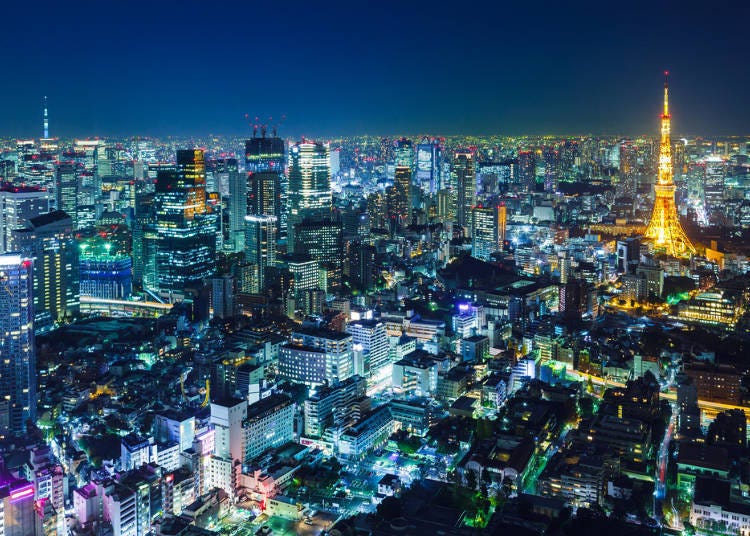
“The biggest factors contributing to Japan's tourism are its sightseeing spots with rich history, its food, and its entertainment! Some shops are open 24h/day, and you can enjoy nightlife after work because it's generally a safe country. Especially the food - it tastes so good, no matter what you eat. I often ask Japanese people ‘What do you like best among Japanese dishes?’, but really, everything is delicious, no matter what you eat.” (American man who has been in Japan for 2 years)
This man (who often had a hard time at work) seems to like his off-work time! Of course, one of the huge appeals about Japan is its amazing food. Although tourists often make a bee-line for sushi and ramen, there's so much more out there. We particularly recommend trying some original Japanese tonkatsu!
Dining out is such high quality! Everything is delicious!
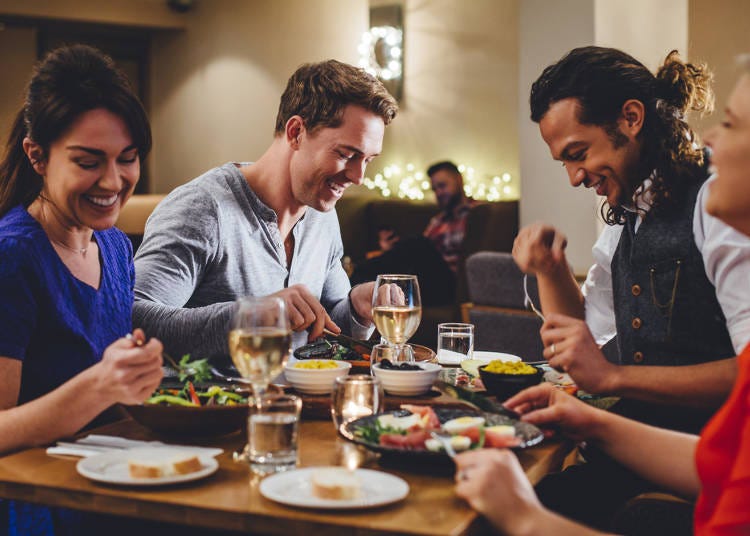
“Japan generally has very high standards when it comes to food. I think that anywhere you go, the food is good. You can eat delicious dishes from all over the world. Japanese really like their wonderful food culture! For example, when I was in the United States I couldn’t really eat Indian food. It wasn’t great. But Japanese Indian food seems authentic and tastes so good! I think Japanese food is delicate and the people who make it put a lot of love into it. American cuisine? To be honest I don’t expect delicious food when I go out(laugh). Can you believe even Chinese food in New York is something that you really don’t want to eat (laugh).” (American man who has been in Japan for 3 years)
Whereas our previous interviewee was excited about going out in general, this American really wanted to home in on food. It seems even picky people can find something they love here!
What does “big face” mean?

“Japanese people really care about appearance and they often make fun of other people’s looks. They just openly say 'you got fat!' I feel like it’s really rude in America, to a point that it’s almost taboo.” (American woman who has lived in Japan for 4 years)
Outside of Japan, you're probably unlikely to tell someone "You've put on a few pounds", unless they're a good friend. Even then you might not! But in Japan, it's fairly common to comment on someone's looks.
The thing that confused this interviewee the most is the “big face” or “small face” comments. Some people said that until they came to Japan, they had never heard comments about their face. They can see where the “small face” is coming from, but they cannot understand what “big face” means. To me, a small face means that features are closer together, so I might be a little offended if someone said I had a big face!
For myself, the first time I heard these expressions I was in high school, and in magazines I saw articles about “small face features.” Since then I feel that the idea that “small face” equals “beauty” has spread. Personally, having heard the opinions of our interviewees, I've wondered whether I care a bit too much about looks myself!
There are plenty of things that can be confusing and surprising about a country you've never visited before. Of course, these are just the opinions of a handful of people, and there are plenty of other weird and wonderful things to explore when traveling. We hope you find some fun surprises on your next trip!
*Prices and options mentioned are subject to change.
*Unless stated otherwise, all prices include tax.
Popular Tours & Activitiess
Recommended places for you
-
Goods

Yoshida Gennojo-Roho Kyoto Buddhist Altars
Gift Shops
Nijo Castle, Kyoto Imperial Palace
-

Kambei Sannomiyahonten
Yakiniku
Kobe, Sannomiya, Kitano
-

ISHIDAYA Hanare
Yakiniku
Kobe, Sannomiya, Kitano
-
Appealing

Rukku and Uohei
Izakaya
Sapporo / Chitose
-

Kanzenkoshitsuyakinikutabehodai Gyugyu Paradise Sannomiya
Yakiniku
Kobe, Sannomiya, Kitano
-

Jukuseiniku-to Namamottsuarera Nikubaru Italian Nikutaria Sannomiya
Izakaya
Kobe, Sannomiya, Kitano
-
Ad

What Makes Japanese Yakiniku So Darn Good? Guide to Cuts, Heat, and Wagyu Know-How
-
Ad

The Whisper of a 1,300-Year-Old History: Meet the Other Face of Nara at Night
by: Shingo Teraoka
-
Ad

5 Recommended Wagyu Yakiniku Restaurants in Tokyo: Signature Dishes, Premium Beef, and Secret Sauces
-
Ad

Japan’s Land of Yokai Monsters and Spooky Stories! A Deep Journey to Mysterious San’in (Tottori & Shimane) for Seasoned Travelers
-

To the Holy Land of Kawaii! Odakyu Tama Center Station Is Becoming a Dreamy Sanrio Wonderland
by: Guest Contributor
-

PokéPark KANTO Is Finally Open! Tokyo's New Pokémon World Starts Before You Even Arrive (2026)
by: Guest Contributor
-

Shocked by Japanese Table Manners! 7 Quirky Things That Surprised British Visitors to Japan
-

Oga Aquarium GAO Guide: Fish, Polar Bears and...Godzilla?
-

What to Pack for Japan: 8 Essential Things for a Hassle-Free Trip
-

5 Items Available Only at Ameyoko
-

Osaka Travel Service Center: So Many Incredibly Convenient Services - in English!
by: WESTPLAN
-

'Japanese People on Trains...' Italian Woman Surprised by Japanese Rules
- #best sushi japan
- #what to do in odaiba
- #what to bring to japan
- #new years in tokyo
- #best ramen japan
- #what to buy in ameyoko
- #japanese nail trends
- #things to do japan
- #onsen tattoo friendly tokyo
- #daiso
- #best coffee japan
- #best japanese soft drinks
- #best yakiniku japan
- #japanese fashion culture
- #japanese convenience store snacks












